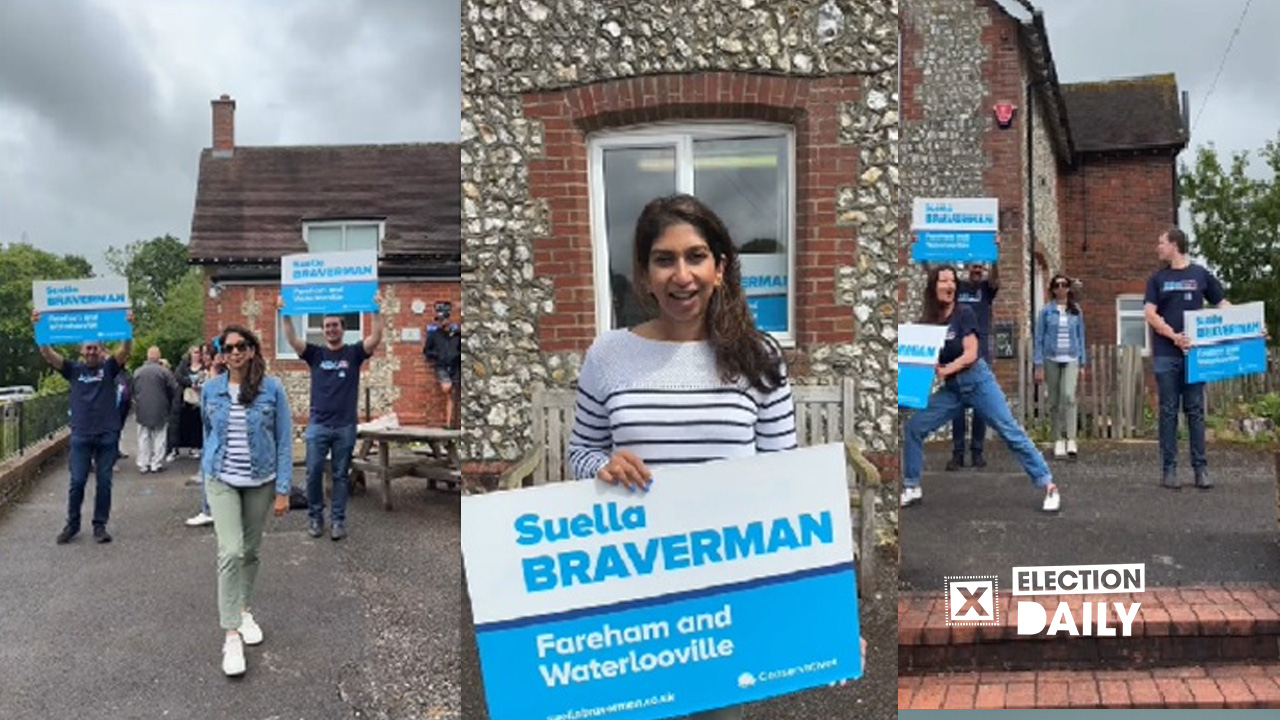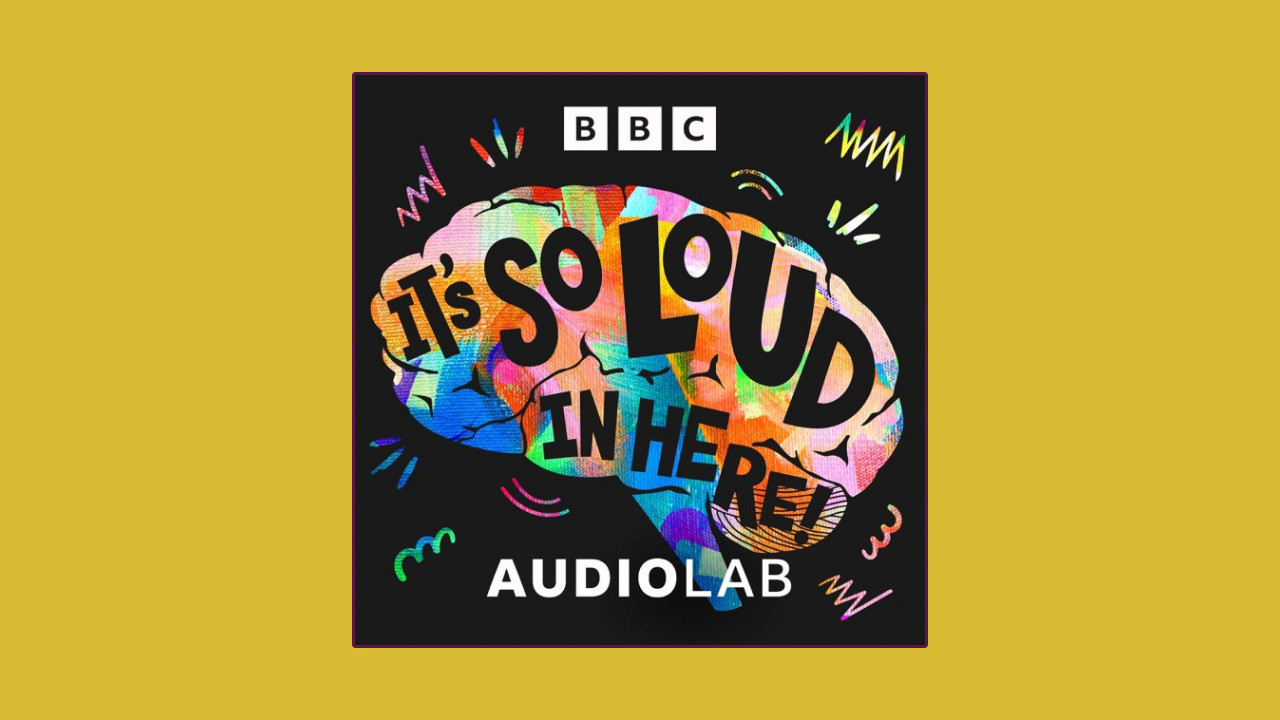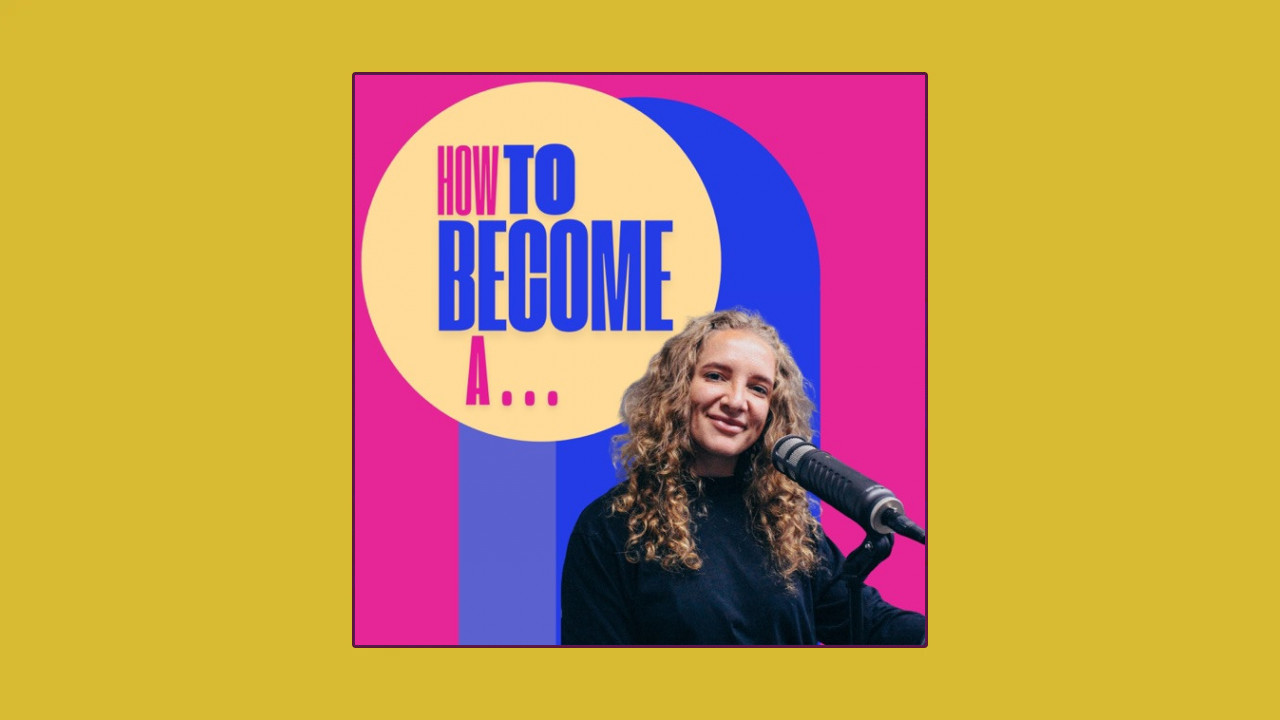Suella Braverman has launched her TikTok campaign with a 15 second video featuring her strutting about with Tory activists. The video sort of spoofs a trend that uses a clip of a baby excited about staying at a luxury hotel. Text in the video asks, "Who is going to vote for Suella on the 4th July?" overlaid by the sound of a two-year-old girl shouting "Me!"
If only two-year-olds in Braverman's newly formed constituency of Fareham and Waterlooville could vote, eh? Despite her social media push Braverman is still among a group of Tory big beasts thought to be in danger of losing their seats, with Grant Shapps and Jeremy Hunt also at risk.
Anyway, everyone thought this year's election was going to be the TikTok election, but we here at Podcast Rex know better; in 2024 it is obvs going to be the News Podcasts Wot Won It. And here is what the best of them reckon is significant about the past 24 or so hours.
The Story: Picking up on the issue of Tories losing seats, The Times team today asks whether this year's election could see the "Blue wall fall". Surrey has always been a bastion of support for the Conservatives, they note, but this year the Liberal Democrats believe they stand a chance of taking some of the truest of blue seats. They head down to Guildford to find out what has changed.
The News Agents: More polling gloom for the Tories. The latest poll from Survation put the Conservatives on little more than seventy seats. This is "political wipe out territory", the News Agents says. As Nigel Farage prepares to launch Reform UK's manifesto in Wales today, they also ask how the main parties should deal with the "Farage problem". Also Lewis Goodall goes to the tightest of marginals – Bristol Central – which might see one of the only Labour casualties at the election – to the leader of the Greens.
Leading: Shadow education secretary Bridget Phillipson joins Rory Stewart and Alastair Campbell to discuss everything from whether there is a class system in the UK to how Jeremy Corbyn's leadership of Labour impacted Red Wall voters. Stewart grills her on her traditional Labour credentials. "Your fiscal policies are not very socially democratic," he says, and today "you are tracking the Tories." Phillipson finds a way out of that one, sort of. True lefties might not be totally convinced.
Quiet Riot: "The really interesting thing is how many people are voting tactically this year", Naomi Smith says. One in five say they are voting for Labour not because it is their first preference but because of tactical reasons. Same with Greens. And that figure goes up to one in three for Lib Dem voters. Interesting analysis.
Political Currency: Former Tory MP Margot James raises a pertinent question: where are all the women in the campaigns? Very good point. We can't all rely on Suella Braverman and her TikTok account. A broader range of voices would definitely be welcome from all parties. George Osborne and Ed Balls also answer a question from Jamie Oliver on whether a future government could further Wes Streeting’s commitment to banning energy drinks and tackle childhood obesity. With obesity levels in year 6 in England (10-11) rising there is obviously a problem that needs to be addressed.
BBC Newscast: Shadow health secretary Wes Streeting is on today to explain Labour’s plans for the NHS and more. The team also speaks to transport secretary Mark Harper, and the leader of the Liberal Democrats Ed Davey. Plaid Cymru leader Rhun ap Iorwerth also comes on to explain why Welsh independence isn’t front and centre of his campaign. And, in a slightly weird crossover, Mark Pougatch, the main presenter of ITV’s Euros coverage, is on hand to chat about the football tournament. I guess Gary Lineker, Gabby Logan, Alex Scott and Mark Chapman were all too busy?
PoliticsJOE: It is about damn time we heard from The Thick of It creator Armando Iannucci in this election. Here he talks about the rise of Nigel Farage and Reform UK, and the alienation of the general public from the main parties. Insightful musings – though not enough Malcolm Tucker-esque profanities for my liking.
Pod Save The UK: Hosts Nish Kumar and Coco Khan are joined by political journalist Zoe Grünewald, to discuss welfare policies, the NHS, taxes and social care in light of all the manifesto launches last week. Plus they hear from Rebekah Pierre (an author and social worker) and Helen Barnard (of the Trussell Trust) on which policies have the most potential for hope. Hope, it has been such a long time since I heard that word. How quaint.
The Two Matts: A Q&A episode that sees Matthew d’Ancona and Matt Kelly of The New European discuss whether a Labour "supermajority" would be a good or bad thing for the country. They also scrutinise the unique structure of Reform UK and its implications. Did you know, for example, Reform UK is a company and not a party? I didn't, but you probably did. Also, they think hard about what they went without in their childhood, responding to the news that Rishi Sunak had to go without Sky. My answer: I had no TV wristwatch. I always wanted one and didn't understand why my parents wouldn't get one for me. The reason, of course, was that it didn't exist. So much unfounded childhood sadness.
Chopper's Political Podcast: GB News' political editor Christopher Hope discusses all the loads of stuff with guests including journalist and presenter Camilla Tominey, Telegraph political correspondent Amy Gibbons and shadow international development minister Lisa Nandy.
Coffee House Shots: What will Keir Starmer's first 100 days in office be like? Not easy, according to The Spectator team. "He has already achieved something really quite extraordinary" says guest on the show John McTernan, the former political secretary to Tony Blair. But will the extraordinary last, he and host Katy Balls ponder.
FT News Briefing: Utterly captivating one this. Margaret Thatcher’s election in 1979 foreshadowed Ronald Reagan’s a year later, and the Brexit vote in 2016 took place just months before Donald Trump’s stunning presidential victory. The FT’s Whitehall editor, Lucy Fisher, and US politics news editor, Derek Brower, come in to explain why British and American politics often rhyme and what that will mean for the upcoming elections in both countries.
And now for something completely different
Black Box: Last week, Apple announced a series of generative artificial intelligence products and services at the company's annual developer conference, WWDC, including "Apple Intelligence" and a deal with ChatGPT-maker OpenAI. The rapid pace of AI development is already shaping up to be the biggest news story of the decade and this smart series sees The Guardian's Michael Safi investigate the story of "the era when people first made contact with AI". In the most recent episode American computer scientist Eliezer Yudkowsky explains why he has been trying to warn the world about the dangers of AI for decades. Now people are finally listening to him, but is it too late? Terrifying but entirely engrossing listening.






